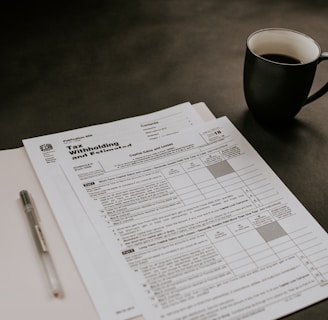Essential Tax Season Guide for Landlords in Canada: Key Dates and Tips for 2025
Tax season in Canada can feel overwhelming for small landlords, but with the right preparation, you can streamline the process, reduce stress, and stay compliant with the Canada Revenue Agency (CRA). Whether you’re managing one rental property or several, understanding key tax deadlines and financial strategies is critical to minimizing your tax burden and avoiding penalties.
FINANCIAL MANAGEMENT


As tax season approaches in Canada, small landlords face the dual challenge of managing properties and ensuring their finances are in order. Understanding the tax landscape—deadlines, obligations, and opportunities—can help you minimize your tax liability while staying compliant with the Canada Revenue Agency (CRA). Below, we’ve outlined key dates for 2025 and critical considerations to make this tax season smoother and more profitable.
Key Tax Dates for 2025
Staying on top of deadlines is essential to avoid penalties and interest charges. The CRA stresses timely filing and payment, so mark these dates on your calendar:
February 24 (Monday): The CRA’s Netfile service opens, allowing most taxpayers to submit returns online. Ensure your documents are ready if you plan to file electronically. (Note: Some exceptions apply—check CRA guidelines.)
February 28 (Friday): Employers must issue T4, T4A, and T5 forms by this date. These are critical for reporting any personal income accurately, so confirm receipt shortly after.
March 3 (Monday): The deadline to contribute to your RRSP for the 2024 tax year. Contributions are tax-deductible and can lower your taxable income—don’t miss this opportunity.
April 30 (Wednesday): The filing and payment deadline for most employed Canadians, including landlords. Submit your return and pay any taxes owed by this date to avoid penalties.
June 16 (Monday): Self-employed individuals, including landlords operating as sole proprietors, have until this date to file returns. However, taxes owed must still be paid by April 30 to avoid interest.
Missing these deadlines can lead to costly repercussions, so plan ahead and gather all necessary documents early.
Key Entities and Considerations
To navigate tax season effectively, familiarize yourself with these essentials:
Canada Revenue Agency (CRA): The CRA oversees Canada’s tax system and provides resources like forms, deadlines, and landlord-specific guidelines. Regularly visit their website for updates and compliance details.
Professional Accountant or Tax Consultant: If tax rules feel daunting, a professional can offer tailored advice, identify deductions, and ensure you maximize tax breaks. While there’s a cost, the savings often justify it.
Rental Income Reporting: Report all rental income—rent payments, parking fees, or storage charges—on your tax return. Accurate records throughout the year are vital for a seamless filing process.
Deductible Expenses: Reduce your taxable income by claiming expenses like property taxes, mortgage interest, insurance, repairs, and tenant advertising costs. Keep detailed receipts to simplify filing and boost deductions.
Capital Cost Allowance (CCA): This optional deduction lets you recover depreciation costs for your property over time. Consult a tax expert to understand how CCA impacts your taxes.
Wrap-Up
Tax season doesn’t have to be a headache for small landlords. By mastering these key dates, understanding your obligations, and maintaining organized finances, you can minimize stress, maximize profitability, and ensure compliance with Canadian tax laws. Start preparing now—gather your documents, consult the CRA website, and consider professional help if needed. With the right approach, you’ll turn tax season into an opportunity to strengthen your rental business.
